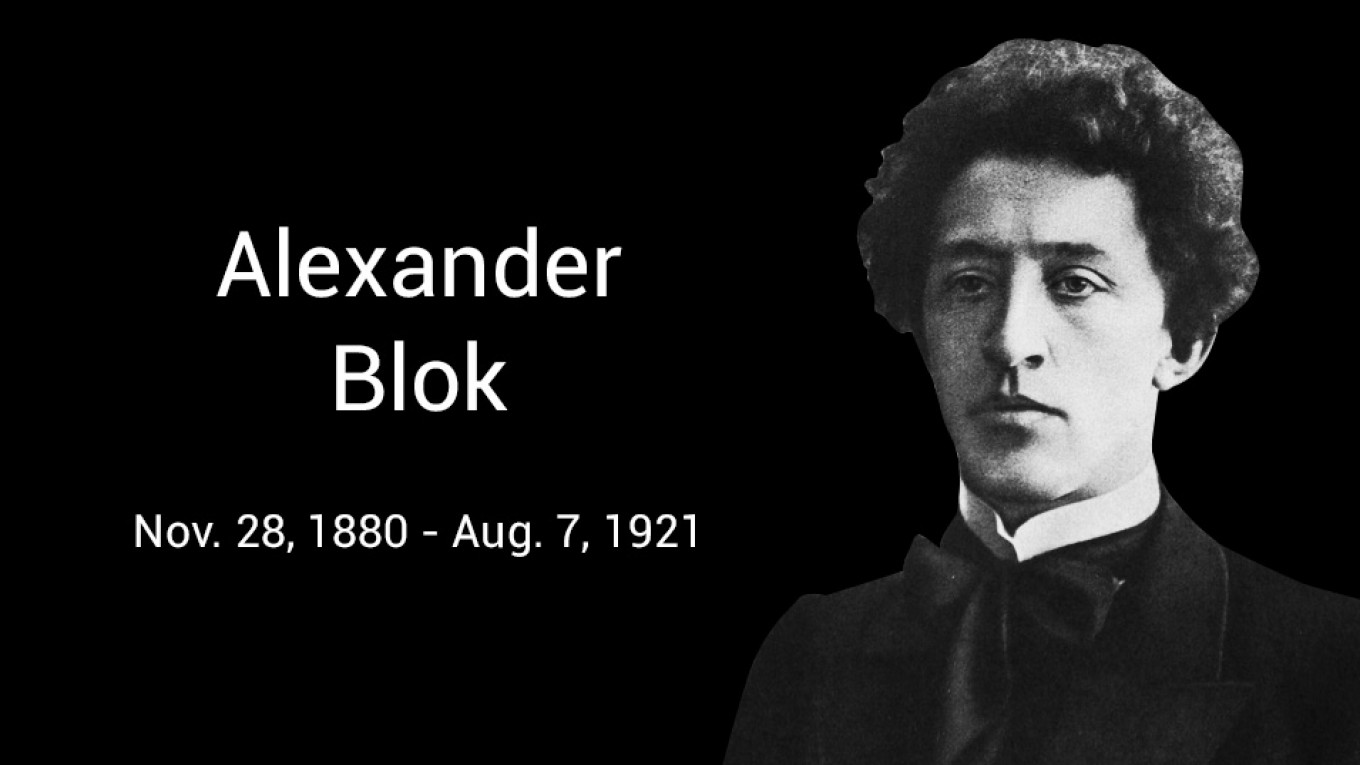
On Nov. 28, 1880, Alexander Blok was born into a prominent academic family in St. Petersburg, although he spent many years in his childhood at the estate of relatives outside Moscow. After studying law and philology at St. Petersburg University, he married Lyubov Mendeleyeva, daughter of the famous scientist, to whom he dedicated a volume of verse called “Verses About a Most Beautiful Lady” in 1904. The collection launched his literary career. His poetry in such collections as “The City” (1904-08) made him one of the most celebrated poets of the Silver Age, whose lyrical and mystical verse became synonymous with the era.
Blok supported the 1905 Revolution, and by the 1917 Revolution he had joined the Communist Party and the Russian Army. He served in civil defense for two years and then worked as a stenographer for the Provisional Government during interrogations of tsarist ministers.
In 1918, he wrote “The Twelve,” a long poem about 12 Bolshevik soldiers that mixed in complex language and imagery the 12 Apostles, Christ, violence, sin and retribution. Neither communists nor anti-communists liked it, and a year after its publication in 1919 he was arrested for counter-revolutionary activities and barely escaped execution.
By 1921 he had stopped writing poetry, instead working as a translator, literary critic and administrator. He was ill, physically and emotionally, and deeply disillusioned with the new Soviet regime. He famously wrote translator, writer and critic Kornei Chukovsky that “all the sounds have fallen silent.” Chukovsky and many others petitioned the state to allow Blok to travel abroad for his health, but he died before the permission arrived.
Blok’s legacy was one of the most curious of all the Soviet-era poets, perhaps because his complex symbolism allowed readers to find whatever they were looking for. He was printed throughout the Soviet period, even in the darkest days of Stalinism, and yet his verse was celebrated in the émigré community as well. In 1943 Vladimir Nabokov wrote Edmund Wilson: “Blok is the winged boat that the child in Rimbaud’s “Bateau Ivre” lets float in the gutter-stream.”
He is buried in the Volkovskoye Cemetery in St. Petersburg.

Leave a Reply